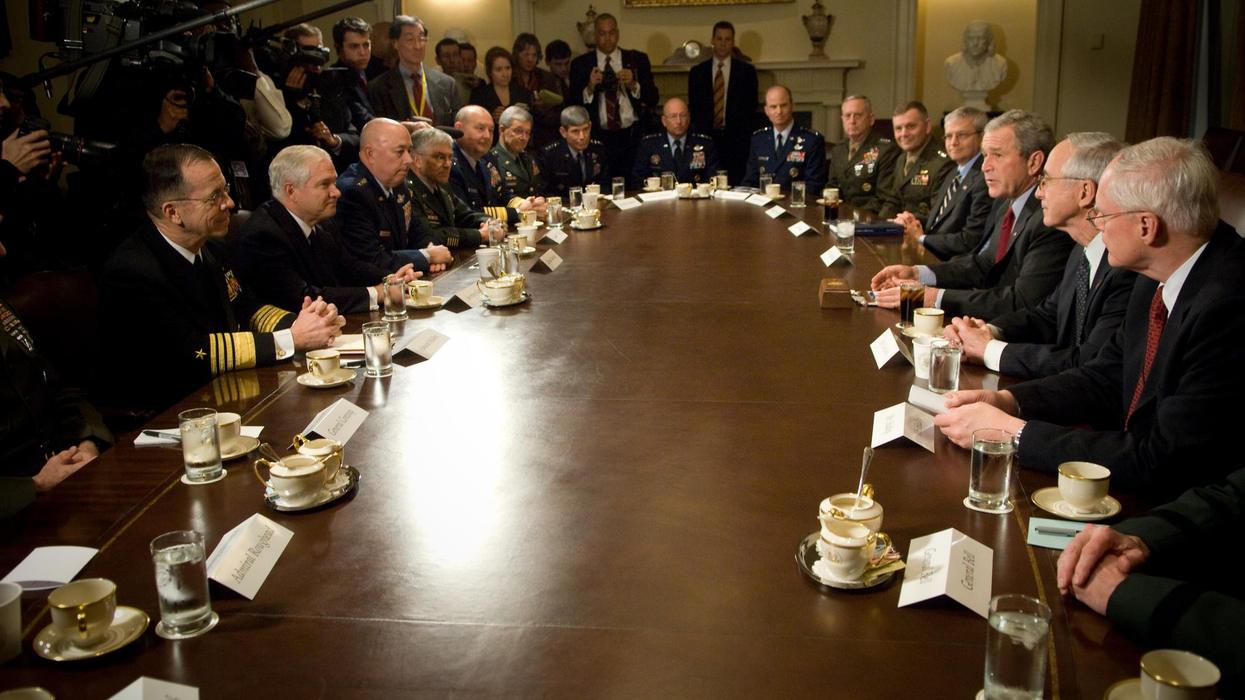Sen. Marco Rubio delivered a predictably hawkish speech at the Heritage Foundation on Tuesday in which he railed against the Chinese government and called for a “whole of society effort” to confront them.
Rubio’s analysis of Chinese ambitions was crude and reductionist, and the specific policy changes he called for were few and far between. He told a simple story of a power-hungry rival that seeks domination for its own sake, and made sure to blame many of our country’s social and economic ills on China as well. While he praised the emergence of a “new consensus” on China in Washington that has replaced the earlier preference for economic engagement, he failed to acknowledge that this new consensus would set the U.S. on a potentially ruinous course towards great power conflict.
His assessment of China’s goals was blunt and not all that insightful: “They believe in raw power. They believe that because they are a big country that their smaller neighbors have to be their tributaries. And they believe that the only way for them to become more powerful is to make others weaker, particularly America.”
This description could be applied with some accuracy to every great power, including the United States, but it also accepts a zero-sum approach to international relations that frequently misleads governments into pursuing self-destructive courses of action. The more that the U.S. sees its relationship with China in purely adversarial terms, the more tempted its leaders will be to try weakening China simply for the sake of harming them, and that will likely result in fighting unnecessary wars and supporting reckless clients in the name of thwarting Chinese influence.
The speech was long on denunciation of unpatriotic corporations and “woke” activists and short on policy substance. One of the few specifics in the speech concerned his interest in the Department of Justice’s China Initiative that began under the Trump administration. Of course Rubio complained about the Biden administration’s decision to shutter it early this year. He dismissed accusations of discrimination that were leveled against it as nothing more than a smear, but there is good reason to believe that the criticisms of the Initiative were accurate. As The Quincy Institute’s Jessica Lee explained in February, “While the China Initiative’s aim may have been to combat Chinese economic espionage and threats to U.S. national security, it evolved into institutionalized racial profiling of people of Chinese heritage.”
Rubio’s dismissive attitude towards such abuses is typical of China hawks that would like to stoke anti-Chinese sentiment while pretending that it will not lead to an increase in discriminatory treatment of Asian-Americans.
He claimed the decision to end the initiative was an example of how “progressive identity politics” is supposedly undermining national security and he called for the reinstatement of the program. His comments are further proof of how unserious China hawks are when it comes to recognizing the dangers of ratcheting up tensions with Beijing. Treating China not only as a potential threat but also as the source of many of America’s internal problems will fan anti-Chinese and anti-hatred, and that will put millions of our own citizens at greater risk of discrimination, abuse and violence.
Rubio may think he has found a convenient way to link his hawkish agenda to current culture war rhetoric, but that just underscores how increasing hostility towards the Chinese government can contribute to worsening internal divisions here in the United States.
According to Rubio, U.S. China policy is “held hostage” by “leftist radicalism.” That is such a bizarre and fantastical assertion that it is difficult to take anything else that Rubio says seriously. Elsewhere in the speech, he repeats the familiar “debt trap” canard, which has been debunked many times in recent years. Rubio also grossly exaggerates the Chinese threat to its neighbors by calling them an “imminent aggressor,” though this may be a case of the senator not understanding what the word imminent means. One can acknowledge that the Chinese government poses a real threat to other states in the region without indulging in such alarmism.
Belittling the threats posed by climate change and the pandemic, Rubio insisted, “The threat that will define this century is China.” If the U.S. goes down the road of embracing great power rivalry at the expense of cooperation on something as important as climate change, it condemns itself and the rest of the world to an increasingly bleak future. In that future, the U.S. and China would vie with each other for dominance over a world marred by intensifying hunger, political instability, and conflict, and whoever emerged on top at the end would be king of the ash heap.
It would not be surprising if our political leaders once again chose to go down the road of militarism and confrontation while neglecting the collective interests of humanity, but the consequences of doing so will very likely be awful even if we manage to avoid the great power war that could follow from Rubio’s more confrontational approach.
Rubio went on to say that there are no “buffer states” in the region, and he claimed that all regional states are on the “front lines,” but this ignores that almost all states in East and Southeast Asia have no desire to play the role that our China hawks would assign to them. These states do not wish to take sides in a U.S.-Chinese contest for supremacy, and any strategy that relies on pulling these states into an anti-China coalition seems certain to fail. The nations that have to live and work with China as their neighbor don’t want to be caught in the middle of the conflict that hawks in Washington want to stoke.
The Florida senator presents the choice as one between allowing the world to fall into a new “dark age of exploitation” dominated by China or one in which the U.S. prevails and ushers in a “new century of liberty, and justice, and prosperity.” The simplistic Manichean framing of the question ignores the reality of relative American decline and the limits of American power, both of which make Rubio’s warmed-over “American century” rhetoric hopelessly outdated. It also rules out the possibility of attempting to find a workable modus vivendi with China in a multipolar world where no one state is in a position to dictate terms to the rest.
Rubio continues to make an aggressive foreign policy the focus of his career in the Senate, and in recent years he has added China to the list of targets that have already included Iran, Cuba, and Venezuela. The speech confirmed that Rubio is still among the most hardline senators.
The last big foreign policy initiative in which he had a leading role was the use of broad sanctions in the destructive pursuit of regime change in Venezuela, which has further exacerbated the humanitarian crisis there. If his track record is any indication of what his preferred China policy would achieve, it is safe to say that it would lead to more misery for ordinary people and greater risks for the United States and its allies.

















